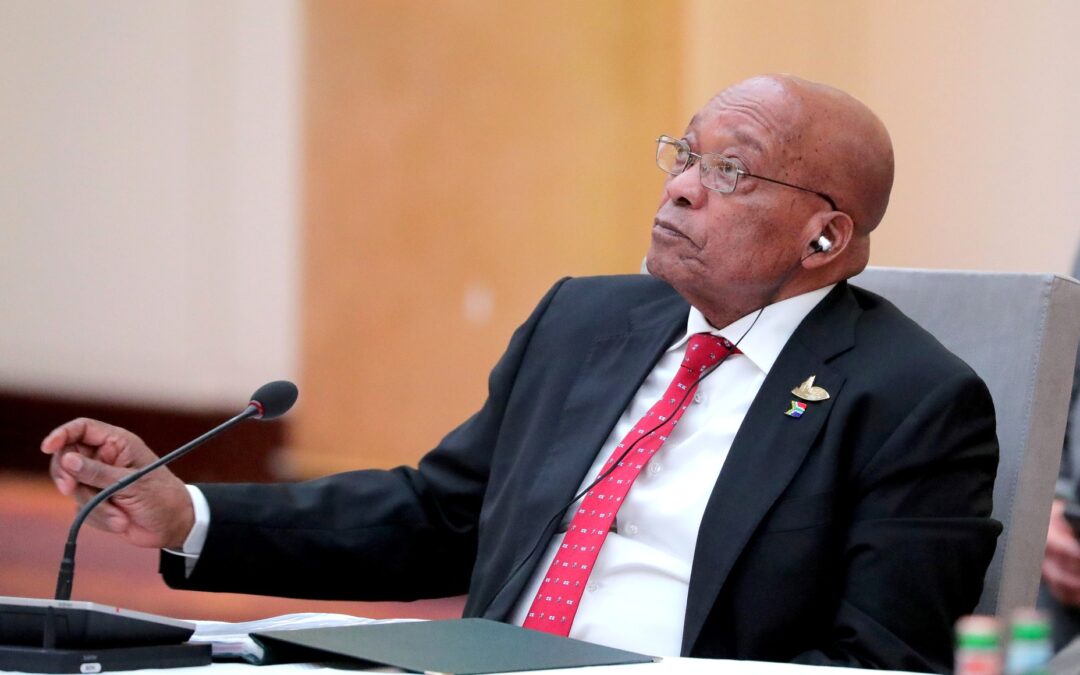
Feb 17, 2021 | News
On 17 February 2021, the International Commission of Jurists condemned former South African President Jacob Zuma’s refusal to abide by an order of the Constitutional Court to appear before a commission investigating allegations of corruption during his tenure.
As a former President, Mr Zuma must be regarded as a private citizen and is subject to the same laws as all other private citizens. If found to have committed an offence he must face the required penalties.
ICJ’s Africa Director, Kaajal Ramjathan-Keogh said,
“Zuma’s failure to follow the decision of the Constitutional Court and to refuse the summons of a proper judicial commission disrespects the rule of law and erodes public confidence in the administration of justice.”
She added that,
“Zuma is facing credible allegations of engaging in corruption and misconduct that demand to be investigated properly. His conduct in rejecting to appear before the investigative commission is an afront to the rule of law and the administration of justice and is unbecoming of a former President who took an oath to uphold the Constitution.”
Zuma has refused to appear before the Judicial Commission of Inquiry into Allegations of State Capture, Corruption and Fraud in the Public Sector including Organs of State, despite being called to testify, since November 2020. He appeared before the Commission in July 2019 but refused to answer certain questions and effectively withdrew his participation.
On 28th January 2021, the South African Constitutional Court held that Zuma was obliged to attend and participate in the Judicial Commission’s proceedings and could not claim a right to remain silent in order to avoid doing so, though he retained a privilege against self-incrimination. Rejecting this ruling, Zuma refused a summons to appear before the Commission as a witness and instead issued a statement on 15th February accusing the Commission Chair of “propagating political propaganda” against him. He further accuses the Commission Chair of “misleading the nation” and of “not following due process to the prejudice of himself and his family”. The statement also accuses the Commission of “being unable to conduct an independent, fair, and impartial investigation into state capture”. Zuma’s statement also lambasts the South African judiciary, alleging without evidence that many judges, including specific named judges are “captured” and have over years been conspiring against him.
Ramjathan-Keogh added,
“Zuma’s groundless attacks on the South African judiciary are an affront to the court’s standing and weaken the principle of the judiciary as an independent and equal branch of government with the responsibility to investigate the actions of a president, or in this case, ex-president.”
The ICJ pointed out that a witness’s failure to appear before the Judicial Commission could constitute an offence under section 6 of the Commissions Act. A witnesses’ failure to attend an inquiry or to remain in attendance until its conclusion could mean that they would be guilty of an offence, the penalty for which is imprisonment or a fine or both.
Contact:
Kaajal Ramjathan-Keogh, Africa Director, Kaajal.Keogh@icj.org, +27845148039
Tanveer Jeewa, Legal and Communications Consultant, Tanveer.Jeewa@icj.org
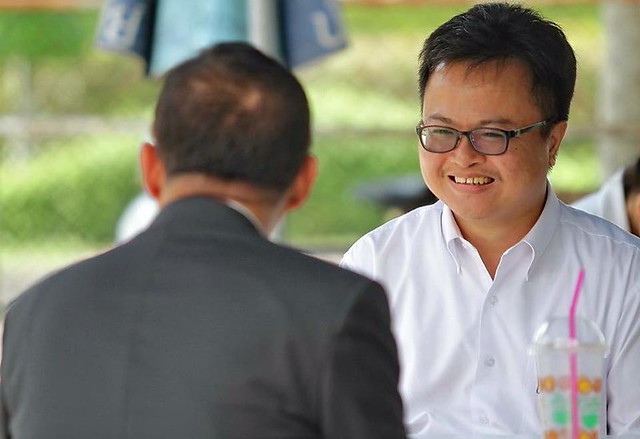
Feb 17, 2021 | News, Non-legal submissions
In a joint letter to the President of the Lawyers Council of Thailand, the ICJ and Lawyers for Lawyers raised concerns on the disbarment proceeding against Mr. Anon Nampha, a lawyer and human rights defender. The organisations believe that the proceedings unduly interfere in his work as a lawyer and serves to impair the exercise of his human rights, including the right to freedom of expression.
Dear President of the Lawyers Council of Thailand,
Re: Disbarment Proceedings Against Mr. Anon Nampha
Lawyers for Lawyers is an independent and non-political foundation that seeks to promote the proper functioning of the rule of law by pursuing freedom and independence of the legal profession.
International Commission of Jurists (ICJ), a global non-governmental organization composed of 60 eminent judges and lawyers, works to advance understanding and respect for rule of law as well as the legal protection of human rights throughout the world.
We write to your office concerning the disbarment proceeding against Mr. Anon Nampha, a lawyer and human rights defender, that is taking place before the Investigative Committee that was established by the Committee on Professional Ethics of the Lawyers Council of Thailand during the Meeting No. 1/2564 on 13 January 2021. We are concerned that the proceeding unduly interferes in his work as lawyer, including in representation of clients, and serves to impair the exercise of his human rights, including the right to freedom of expression.
According to our information, we understand that the proceeding against lawyer Anon Nampha is related to a complaint motion filed to the Lawyers Council of Thailand on 7 August 2020 by Mr. Aphiwat Khanthong, Assistant Minister in the Office of the Prime Minister, claiming to be acting in his capacity as a private attorney at Or Amporn Na Takua Tung and Friends Law Office. Mr. Aphiwat Khanthong alleged that lawyer Anon Nampha’s behaviour violated the Lawyers Council of Thailand’s disciplinary rules as, he claims, it would “incite, intend to cause unrest, distort information and insult on the monarchy”. The alleged speech in question apparently called for reform of the monarchy, during a Harry Potter-themed protest at the Democracy Monument on Ratchadamnoen Avenue on 3 August 2020.
Under international law and standards, lawyers, like other individuals, enjoy the right to freedom of expression, belief, association and assembly. A lawyer should be able to draw the public’s attention to issues relating to public affairs in their official capacity as well as in their private capacity. Suspensions or revocations of lawyer licenses as a result of exercise of their legitimate rights and freedoms do not only impact on the exercise of the rights of the lawyers, but also on the rights of their clients to be represented by the lawyer of their choosing.
Download the full letter in English and Thai.
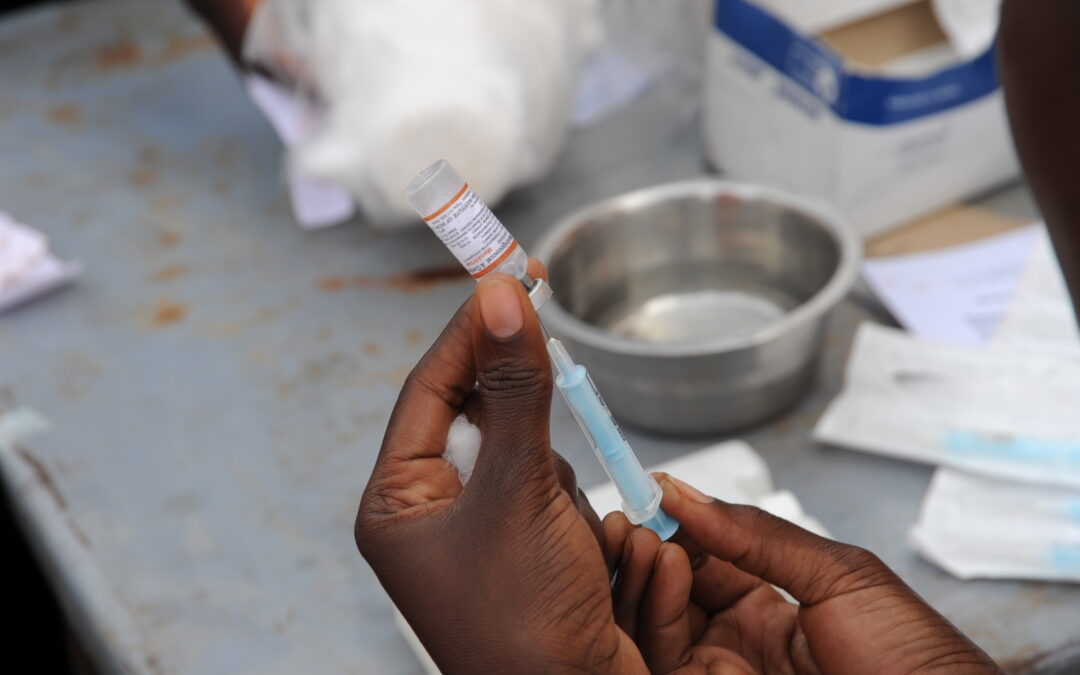
Feb 15, 2021 | News
On 15 February 2021, the International Commission of Jurists (ICJ) addressed the UN Committee on Economic, Social and Cultural Rights (CESCR) during the opening of its 69th Session.
Drawing the CESCR’s attention to States’ continued failure to make provisions to meet their obligations under the right to health, the ICJ highlighted States’ obligations to:
- Procure COVID-19 vaccines;
- Produce, publicize and implement comprehensive vaccine rollout plans;
- Ensure non-discriminatory access to vaccines to all people, including to undocumented persons;
- Cooperate with other States to ensure equitable vaccine access globally; and
- Ensure continued access to effective remedies, including judicial remedies, for human rights violations, including of the right to health.
ICJ Legal Adviser on Economic, Social and Cultural Rights, Timothy Fish Hodgson, said:
“Equitable access to COVID-19 vaccines is a right, not a privilege. States are obliged to plan transparently and clearly for the provision of vaccines. In doing so, they must be guided by human rights standards, including those relating to the right to health. Particularly at this time, it is imperative that Courts be accessible and operational to ensure the enforcement of this right.”
Applauding CESCR’s statements on COVID-19 in general and vaccine access in particular, the ICJ’s submission encourages the Committee to make full use of the Convention’s State reporting procedure to provide crucial and specific guidance to individual States on how best to ensure compliance with their Covenant obligations under the right to health in the context of COVID-19.
The ICJ’s submission provides alarming examples of various States’ failure to respect, protect and fulfil the right to health, including the refusal of some States to take steps to procure vaccines at all. Such States include Tanzania, Burundi, Eritrea and Madagascar.
Notable too is Israel’s explicit flouting of its obligation to ensure vaccine access to Palestinians living in the Occupied Palestinian Territories, and the policy decisions of countries such as Guatemala, El Salvador and Costa Rica to inhibit access to vaccines for migrants by requiring prohibitive documentary access as a precondition.
The ICJ’s submission also addresses the large divide between vaccine access in Global North and Global South countries. Some States, notably in the Global North, have procured enough doses to vaccinate their population several times over, while others, especially in the Global South, have not been able to begin the process because of limited availability and purchasing power. Despite these inequalities, many wealthier countries continue to ignore the recommendations of CESCR and the advice of a large range of UN Special Procedures by opposing a WTO intellectual property waiver which would assist in ensuring the affordability of vaccines for all States.
To read the full statement, click here: Universal-CESCR-Opening-Statement-2021-ENG
Contact
Timothy Fish Hodgson, Legal Adviser on Economic, Social and Cultural Rights, t: +27828719905, e: timothy.hodgson(a)icj.org
Tanveer Jeewa, Media and Legal Consultant, e: Tanveer.Jeewa(a)icj.org
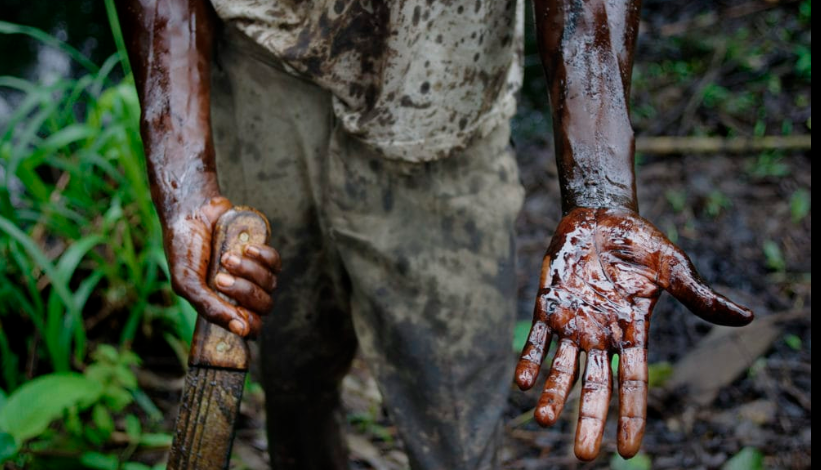
Feb 12, 2021 | Cases, News
Today, the ICJ and The Corporate Responsibility (CORE) Coalition UK, welcomed the judgment of the UK Supreme Court in the case Okpabi et al. v Royal Dutch Shell plc et al as a major step forward for those seeking access to justice for corporate abuses in the Niger Delta and around the world.
The Supreme Court judgment allows the case to proceed in the UK courts, reversing earlier decisions by the Court of Appeal and the High Court, and reaffirming the precedent established in its own previous decision in Lungowe et al v Vedanta resources (2019).
Carlos Lopez, Senior Legal Advisor at the ICJ, said:
“The emphasis of the Supreme Court on the relevance of evidence from internal company documents is of utmost importance for the proper assessment of whether the parent company intervened, advised or controlled the relevant activities of its subsidiary that caused harm, including notably human rights abuses and environmental destruction.
“This should have an impact on future similar proceedings before courts in the UK and elsewhere.”
Mark Dearn, Director of CORE, said:
“This landmark ruling is a vital step towards justice for some 50,000 claimants from the Ogale and Bille communities. It sends a clear message to multinational corporations like Shell – you have a duty of care and you will be held to account for human rights abuses and environmental damage caused by subsidiaries you control.
“Shell brazenly claimed in court that the oil spills were due to ‘uniquely Nigerian problems’. But the unique problem long faced by communities in this region is Shell’s impunity, as it has repeatedly tried to dodge accountability for its catastrophic destruction of the environment and people’s livelihoods.”
“It’s now crucial that governments step up to the plate to create new corporate accountability laws so that businesses know exactly what is expected of them.”
In Vedanta, the Court affirmed that a parent company that sufficiently intervenes, controls or advises the relevant operations of its subsidiary may bear liability for the breach of its duty of care towards the people affected by those operations.
Okpabi and other nearly 50,000 claimants in total – sued Royal Dutch Shell (RDS -the UK based parent company) and its Nigerian subsidiary Shell Petroleum Development Corporation (SPDC) for their alleged involvement in the leakage of oil pipelines which destroyed their farming land, wiped out fish stocks and poisoned drinking water in the Niger Delta, Nigeria.
In 2018 the Court of Appeal dismissed the claimants’ case, but the claimants appealed to the Supreme Court. The ICJ and the CORE Coalition intervened before the Supreme Court.
The Supreme Court has allowed the claim to proceed, focusing on whether the claim had a real prospect of success and the high relevance of the internal company documents for a proper assessment.
Find the judgment here.
Notes to Editors:
- This case was first launched in 2015 in the UK High Court. For a timeline of the case’s passage through the UK court system, see here.
- The ICJ and CORE Coalition submitted a legal brief to the Supreme Court setting out the applicability of comparative law and standards regarding companies’ responsibilities in relation to human rights and environmental protection. These standards showed that Royal Dutch Shell PLC (Shell) could have duty of care in relation to the communities affected by its Nigerian subsidiary’s activities.
- In 2018 the Court of Appeal dismissed the claimants’ case, ruling that Shell did not exercise sufficient control over its subsidiary SPDC for Shell possibly to hold a duty of care towards those affected by the oil spills.
- The Supreme Court judgment reverses that judgment, cautioning against dismissing such claims in “mini-trials” without proper access to all relevant facts and evidence that are in great part in the power of the company. The judgment clarifies the evidential threshold needed for the courts to hear such cases in the UK: “The resolution of the jurisdictional challenge depended upon whether the appellants’ claim satisfied the summary judgment test of real prospect of success.” (para 127 ref. Vedanta at para 45)
- In another section the Court also corrected the Court of Appeal’s view that the promulgation by a parent company of group wide policies or standards can never in itself give rise to a duty of care, saying: “that is inconsistent with Vedanta. Group guidelines … may be shown to contain systemic errors which, when implemented as of course by a particular subsidiary, then cause harm to third parties.” (para 143)
- In Lungowe v Vedanta Resources plc, which CORE and the ICJ similarly filed a joint intervention, the Supreme Court ruled that a duty of care was owed by the UK parent company, Vedanta. A settlement was subsequently reached. As the Supreme Court notes, this ruling was “very relevant to both the procedural and the substantive issues raised on this [Okpabi v Shell] appeal”.
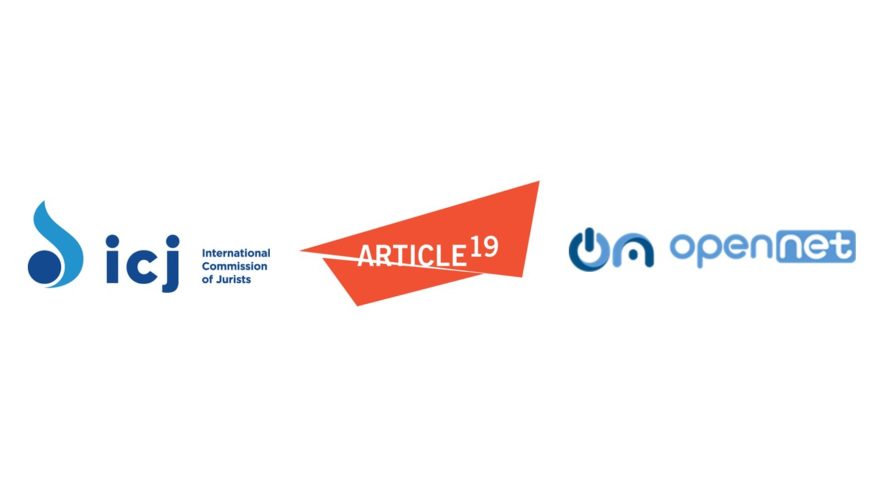
Feb 12, 2021 | Advocacy, News
The Myanmar military should immediately abandon the draft Cyber Security Law and end Internet restrictions it has imposed since taking power in a coup on 1 February, said ARTICLE 19, Open Net Association, and the ICJ today.
“It is telling that controlling cyberspace is one of the top priorities of the Myanmar military, which seized power through an illegitimate coup d’etat only last week,” said Sam Zarifi, ICJ’s Secretary General. “The military is used to having total power in Myanmar, but this time they have to face a population that has access to information and can communicate internally and externally.”
Under international law, the rights to freedom of expression and information may only be restricted if prescribed by law, in pursuit of a legitimate aim, and necessary and proportionate to that aim. This right applies equally online. In 2018, the UN Human Rights Council condemned ‘all undue restrictions on freedom of opinion and expression online that violate international law’.
“Having illegally seized control of government, the military is trying to ram through a hugely problematic law that would imperil the Myanmar public’s ability to share and access information online,” said Matthew Bugher, ARTICLE 19’s Head of Asia Programme. “The draft law is further evidence of the military’s intent to control online discourse and permanently undermine Internet freedom in the country.”
Human rights bodies and experts have repeatedly condemned Internet shutdowns, which are inherently unnecessary and disproportionate irrespective of their purported objectives. Four UN special procedures with mandates from the Human Rights Council stated in their 2011 Joint Declaration on Freedom of Expression and the Internet that, ‘Cutting off access to the Internet, or parts of the Internet, for whole populations or segments of the public (shutting down the Internet) can never be justified, including on public order or national security grounds’. The UN Human Rights Council has repeatedly called on Myanmar to lift Internet restrictions in the country.
Anonymity is furthermore crucial to protecting the right to freedom of expression and other human rights, including the right to privacy. UN Human Rights Council Resolution 38/7 recognizes that ‘privacy online is important for the realization of the right to freedom of expression and to hold opinions without interference, and the right to freedom of peaceful assembly and association’. The UN Special Rapporteur on freedom of expression in a 2015 report stated that restrictions on encryption must confirm to the three-part test on restrictions to the freedom of expression noted above.
“The ban on online anonymity in the cybersecurity law is not just bad for Myanmar but sets a dangerous precedent for the whole of Asia”, said Kyung Sin Park, Executive Director of Open Net Association, whose founders spearheaded a successful constitutional challenge against a similar law in South Korea in 2012. “The content takedown provisions and criminalization of online speech in the draft law are extremely broad and utterly lacking due process even in comparison to other Asian countries. The proposal smacks of a legislative attempt to extend the powers the military had taken in an unlawful, anti-democratic coup.”
ISPs, online service providers (as defined by the draft law to mean content providers) and other stakeholders have only been given until 15 February for input. This is a clear indication that the military has no intention of engaging in meaningful consultation.
On 10 February, a group of 158 Myanmar civil society organizations released a statement rejecting the draft Cyber Security Law, while reiterating their view that the Myanmar military could not legitimately exercise legislative authority.
“All online service providers inside and outside the country should be alarmed at this intrusion of military authority into cyberspace and refuse to implement these hugely problematic restrictions,” said ICJ’s Sam Zarifi.
SPECIFIC PROBLEMATIC PROVISIONS OF THE DRAFT CYBERSECURITY LAW (based on an unofficial translation of the draft law):
Many provisions in the draft law are vague and overbroad, in contravention of the principle of legality. If enacted, the draft law would greatly extend the powers of military authorities to restrict and punish online expression.
The law provides overarching control to the military’s ‘State Administration Council’, a newly-formed body appointed by the Commander-in-Chief. The direct military control of Internet service provision and its role in the policing of content online is in and of itself cause for alarm. Further, the military should in no circumstances be charged with protecting personal data.
Section 29 of the draft law is overly broad as it demands the prevention, removal, destruction and cessation of a broad and vaguely defined range of expression, including online comments deemed ‘misinformation’ or ‘disinformation’, any expression that causes hate and risks disrupting unity, stability, and peace, and ‘written and verbal statements against any existing law’.
Under section 64, any person convicted of creating ‘misinformation’ and ‘disinformation’ with the intent of causing public panic, loss of trust or social division in cyberspace is punishable by three years’ imprisonment, a fine, or both.
International human rights bodies have repeatedly urged governments against laws that create ‘false news’ offences, warning about their potential abuse by governments to suppress criticism and other forms of speech protected by international human rights law.
Section 30 threatens the right to online anonymity by requiring online service providers to retain usernames, IP addresses, national IDs, and other personal data for up to three years, and to provide this information to authorities upon request. For this purpose, Section 28 requires an online service provider to ensure that any device that stores the user’s information must be kept in a place designated by the relevant Ministry.
The draft law also has overly broad catch-all provisions in Sections 61 and 73 respectively whereby online service providers that fail to comply with any provisions of the draft law face a maximum penalty of three years’ imprisonment and a fine and individuals failing to comply with any rules, regulations, notifications, orders, directives, and procedures issued under the draft law are subject to one year’s imprisonment and a fine. These sanctions which are punitive in purpose and effective are non-compliant with the requirement of proportionality under international human rights law and standards on freedom of expression.
The draft law also provides for enhanced power to control the Internet without the benefit of judicial review by independent civilian courts. In the ‘public interest’, a ministry approved by the State Administration Council may temporarily prohibit any online service or take control of devices related to online service provision, as well as permanently ban any online service provider. This is a less stringent standard than that provided under the problematic and much-criticized section 77 of the Telecommunications Act, which allows for shut downs or control of telecommunications in an ‘emergency situation’.
Download
Statement in Burmese.
Contact
Osama Motiwala, ICJ Asia-Pacific Communications Officer, e: osama.motiwala(a)icj.org









